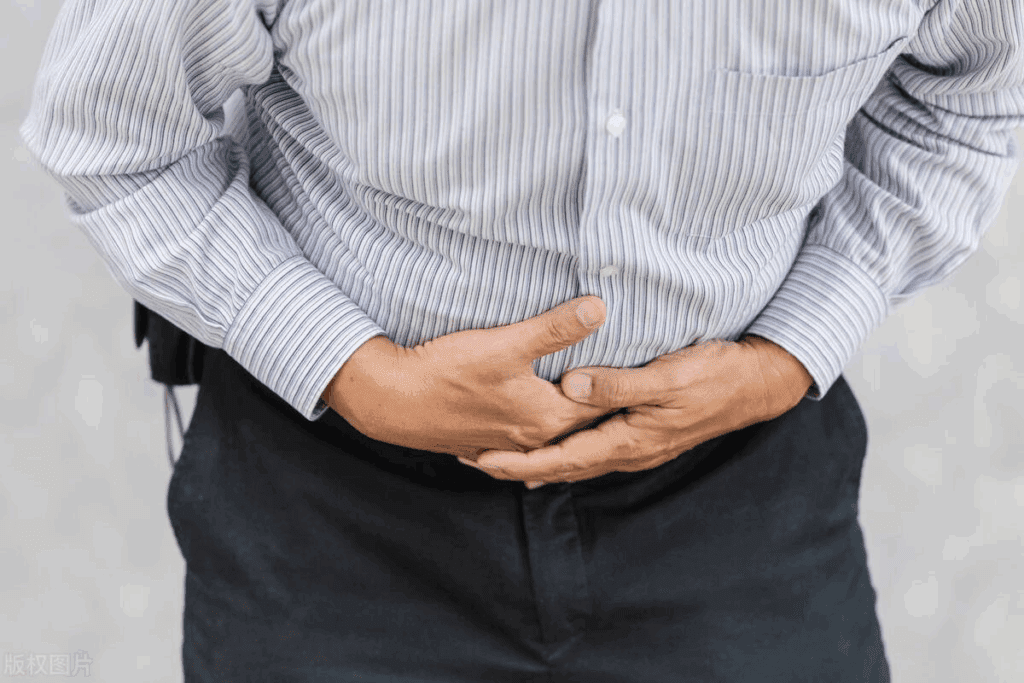Last Updated on November 26, 2025 by Bilal Hasdemir

Constipation after hernia surgery is common, affecting up to 30-40 percent of patients. We know it can really slow down your recovery.
Things like pain meds, anesthesia, and not moving much can make it worse. At Liv Hospital, we put you first. We use safe ways to help you get back to normal bowel movements without hurting your surgery site.
We’ll look at proven ways to ease constipation. We want to make sure your recovery is smooth and safe.

Hernia surgery can cause constipation in many patients. It’s important to know why and how to manage it. Constipation after surgery can slow down recovery and affect overall health.
Studies show that 30-40 percent of patients may have trouble with bowel movements after surgery. This shows how common constipation is after hernia surgery. It also points to the need for good management plans.
A study in a medical journal found that constipation is a big problem for patients after hernia surgery. It stressed the importance of focusing on bowel habits during recovery to avoid more issues.
The time it takes for digestion to get back to normal after hernia surgery varies. Usually, bowel movements should return within a few days to a week. But some people might take longer.
Many things can affect how quickly someone recovers. These include the surgery type, the patient’s health, and post-operative care.
It’s very important to act quickly if you have constipation after hernia surgery. Constipation can put extra pressure on the abdomen. This can harm the surgery site and the repair.
Key reasons for immediate action include:
Understanding constipation after hernia surgery and taking early action can greatly improve recovery. It can also make the experience less painful and more successful.

Constipation is common after hernia surgery. It comes from medical and lifestyle reasons. Knowing these reasons helps manage and prevent constipation.
Anesthesia during hernia surgery slows down the gut. General anesthesia makes the gut move more slowly, causing constipation. This can last for days after surgery.
Anesthesia messes with the nerves that control the intestines. This reduces the normal movements that push food through. So, stool builds up.
Pain meds, like opioids, can cause constipation. They bind to opioid receptors in the gut. This makes it hard for stool to move through.
After hernia surgery, patients need to rest. But too much rest can lead to constipation.
Moving around helps the bowel move. Without it, the bowel gets slow, causing constipation.
Hospital meals can also cause constipation. They often lack fiber. Patients might not drink enough water or eat enough food.
A diet low in fiber makes stools harder to pass. It’s important to eat enough fiber and stay hydrated to keep bowel movements regular.
Hernia surgery can cause constipation, which is risky for health and recovery. Constipation after hernia repair can harm the surgical area and recovery.
Straining during bowel movements can increase pressure on the surgical site. This can lead to complications. The extra pressure may cause discomfort or more serious issues.
Constipation can cause straining, which may damage the hernia repair. This could mean more surgery, longer recovery, and more problems.
Constipation can make recovery very uncomfortable. It can affect daily life and overall happiness.
Constipation worries can also harm mental health. The stress of constipation can make recovery harder, affecting mental well-being.
Knowing these risks shows why managing constipation is key after hernia surgery. Taking steps to prevent or treat constipation can help avoid complications and improve recovery.
Learning how to poop safely after hernia surgery can make recovery easier. After surgery, bowel movements can be hard because of anesthesia, pain meds, and less activity.
In the first week, bowel movements might be off or hard. It’s key to be patient and take steps for a safe, comfy bowel movement.
It’s important to know the difference between normal and abnormal signs in bowel movements after surgery. Normal recovery might have some discomfort, but it shouldn’t be too bad.
Making the bathroom comfy can help with bowel movements after hernia surgery. Here are some tips:
By following these tips, patients can have a safe, comfortable bowel movement after hernia surgery. This helps make recovery smoother and more comfortable.
A well-planned diet is key to managing constipation after hernia surgery. We’ll look at how changing your diet can ease constipation and aid in a smoother recovery.
Fiber-rich foods are great for relieving constipation. They make stool softer and bulkier, making it easier to pass. Some examples include:
As Dr. Jane Smith, a gastroenterologist, notes,
“A high-fiber diet is one of the most effective ways to prevent and treat constipation. It’s essential to increase fiber intake gradually to allow the gut to adjust.”
Some foods can make constipation worse. It’s best to limit or avoid these during recovery:
Good meal planning supports digestion and helps manage constipation. Here are some tips:
Here’s a sample menu to guide your dietary choices during recovery:
| Meal | Food |
| Breakfast | Oatmeal with banana and almond milk |
| Lunch | Grilled chicken with quinoa and steamed vegetables |
| Dinner | Baked salmon with brown rice and roasted vegetables |
| Snack | Apple slices with almond butter |
By following these dietary approaches, you can help relieve constipation and support your recovery after hernia surgery.
Drinking enough water is good for bowel health. It makes stool softer, making it easier to pass. This helps avoid constipation.
We suggest drinking 8-10 glasses of fluid daily. Your needs might change based on age, sex, and how active you are. It’s better to drink fluids all day, not just at once.
Not all drinks are good for avoiding constipation. Water is best, but herbal teas, clear broths, and drinks with electrolytes help too. Stay away from caffeinated and carbonated drinks as they can dry you out.
To drink enough, make a hydration plan. Start with a glass of water when you wake up. Drink more at set times during the day. A water bottle can remind you to drink.
How do you know if you’re drinking enough? Look for pale yellow or clear urine, regular bowel movements, and feeling good. Dark urine, dizziness, or constipation mean you might need more water.
By following these tips, you can improve your bowel function and lower constipation after hernia surgery. Make drinking water a habit and include it in your daily life.
Doing the right physical activity can help with constipation and bowel movements after hernia surgery. It’s key to know how gentle exercises can help your bowels and aid in a smooth recovery.
Walking is a simple yet effective way to help with bowel movements. Start with short walks around your home or hospital room. As you get stronger, increase the distance. Always listen to your body and don’t push too hard, at least not at first.
Tips for Safe Walking:
Other gentle exercises can also help with digestion and bowel movements. Do these exercises carefully, within your comfort and pain limits.
Examples of Gentle Exercises:
While activity is good, some activities can harm your recovery. Avoid heavy lifting, bending, or strenuous exercises until cleared by your doctor.
Activities to Avoid:
To wake up your bowels after surgery, mix diet changes, hydration, and gentle activity. Eating fiber-rich foods and staying hydrated can also help.
By following these guidelines, you can help with healthy bowel movements and support your recovery after hernia surgery.
Hernia surgery patients often face constipation. But many medications and supplements can help. It’s important to manage constipation well, as it affects comfort and overall health.
Stool softeners are often recommended for hernia surgery recovery. They make stool softer and easier to pass by adding water. Docusate is a top choice for healthcare providers because it’s safe and works well.
A study in the Journal of Clinical Gastroenterology found docusate sodium improves bowel movements. The usual dose is 100 mg twice a day. Always follow your doctor’s advice on dosage.
Laxatives can also help with constipation, but use them carefully. There are stimulant and osmotic laxatives. Stimulant laxatives push stool through the intestines, while osmotic laxatives soften it by keeping fluid in.
Always talk to your doctor before using laxatives. They can have side effects and interact with other drugs. Use laxatives only if stool softeners don’t work.
| Type of Laxative | Examples | How They Work |
| Stimulant Laxatives | Senna, Bisacodyl | Stimulate the intestinal muscles to move the stool |
| Osmotic Laxatives | Milk of Magnesia, Polyethylene Glycol | Help retain fluid in the stool to soften it |
Some people try natural supplements before medication. Psyllium husk is a fiber supplement that helps with bowel movements. Probiotics also support gut health.
“A healthy gut microbiome is essential for proper digestive function. Probiotics can help maintain this balance, potentially easing constipation.”
— Dr. Jane Smith, Gastroenterologist
Always talk to your doctor before starting any new medication or supplement. They can suggest the best options for you and check for any drug interactions.
Your doctor will also guide you on the right dosage and monitor your progress. This personalized advice is key to safely managing constipation after hernia surgery.
Using the toilet after hernia repair is key to a smooth recovery. It’s important to avoid straining the surgical area. This helps your body heal faster and more comfortably.
After hernia surgery, sitting right on the toilet is vital. Sit with your feet flat or on a footstool. Keep your back straight and lean forward a bit. This reduces stress on your muscles and the surgery site.
It’s best to avoid pushing hard to poop after hernia surgery. Straining can harm the repair. Instead, use stool softeners or fiber to make it easier. If you’re having trouble, talk to your doctor.
“Straining during bowel movements can lead to complications, including increased risk of hernia recurrence. It’s essential to adopt gentle bowel habits post-surgery.”
Relaxation helps with bowel movements after hernia surgery. Take deep breaths and relax your belly. A warm bathroom and privacy can also help.
Supportive devices can make bowel movements more comfortable. A back or belly cushion can help. Elevating your feet with a footstool also helps.
| Supportive Device | Benefit |
| Back Cushion | Reduces strain on the back and abdominal area |
| Footstool | Promotes a natural squatting position, easing bowel movements |
| Abdominal Support | Provides comfort and stability to the surgical site |
Using these toilet techniques can make your recovery easier. Always get advice from your doctor on how to manage your recovery.
As we wrap up our talk on managing constipation after hernia surgery, it’s key to know when to get medical help. If symptoms don’t get better or get worse, it’s a sign to seek help. This could lead to discomfort, pain, and even harm to the surgical area.
It’s important to watch your bowel movements and digestive health during recovery. If constipation lasts despite trying different things, like diet changes and staying hydrated, get medical help. Severe symptoms like abdominal pain, vomiting, or bloody stools need immediate attention.
We’ve shared ways to help with constipation, like changing your diet, staying hydrated, and being active. By using these tips and knowing when to get medical help, you can have a safe and successful recovery.
If you’re dealing with ongoing or severe constipation after hernia surgery, talk to your doctor. They can check your situation and give advice that fits your needs. This way, you can move forward with confidence in your recovery.
Constipation after hernia surgery comes from several sources. Anesthesia can slow down the gut. Pain meds can also affect bowel movements. Less activity and diet changes in the hospital pl, ay a role too.
To beat constipation after hernia surgery, try a few things. Eat more fiber, drink lots of water, and move a bit. Gentle exercises and the right toilet habits can also help.
Eating foods high in fiber is key after hernia surgery. Include fruits, veggies, whole grains, and legumes in your diet. A sample menu can guide you in making good food choices.
Drinking enough water is vital after hernia surgery. Aim for eight glasses a day. Stick to water, clear broths, and electrolyte drinks. A hydration schedule can help you stay on track.
Avoid pushing to poop after hernia surgery. It can strain the surgical area. Instead, try deep breathing to help with bowel movements.
Stool softeners can help with constipation after hernia surgery. Always talk to a doctor before starting any new meds or supplements.
Make your bathroom comfy for bowel movements after hernia surgery. Use a stool, keep it warm, and avoid distractions.
If constipation doesn’t go away or gets worse, see a doctor. Call if you have pain, vomiting, or bleeding, or if constipation lasts more than a few days.
Gentle exercises like walking can help with bowel movements after hernia surgery. Safe walking and gentle exercises can also aid digestion.
Natural supplements like psyllium husk or prune juice might help. But always check with a doctor first to make sure they’re safe and effective.
Cambridge University Hospitals NHS Foundation Trust. (n.d.). Liver shrinkage diet for patients having laparoscopic surgery. Cambridge University Hospitals. https://www.cuh.nhs.uk/patient-information/liver-shrinkage-diet-for-patients-having-laparoscopic-surgery/
Subscribe to our e-newsletter to stay informed about the latest innovations in the world of health and exclusive offers!